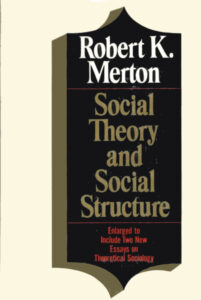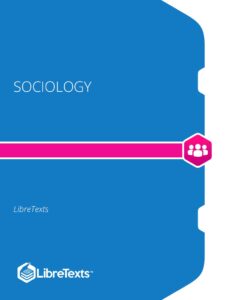Summary
Written by Canadians for Canadians, Sociology Unlocked uses recent major events relevant to Canadians—such as Gord Downie’s final tour, the Humboldt crash, the opioid crisis, the National Inquiry into the Missing and Murdered Indigenous Women and Girls’ Final Report, the body positivity movement, and many more—to illustrate sociological concepts.
Sociology is the scientific study of human society and social behaviour. Sociologists attempt to capture and explain the complexity of human social life by examining our social relationships, social interactions, and culture. We humans spend most of our waking hours with other people, creating social groups that sociologists study. These groups range in size from groups of two to large companies and even whole societies. But whatever the size of the grouping, sociologists want to know what factors influence the ability of people to co-operate, understand one another, and achieve group goals. Beyond that, they want to know how belonging to a group affects a person’s self-perception.
Most of what sociologists look at, and most sociological ways of looking, fall into one of two distinct subfields: macrosociology and microsociology. Macrosociology is sociological study on a large scale. It is the study of social institutions, such as religious institutions, marriage, and sports, as well as the study of large social groups, such as visible minorities or college students. Macrosociology also includes the study of whole societies—in particular, the study of social arrangements and patterns within these societies (for example, marriage rate patterns in a country over a certain period of time). In contrast, microsociology is sociological study on a small scale—the study of small groups, such as your class or your peer group. Microsociology also zooms in on groups to study the individual people within them, and how they interact. These interactions create the bigger social patterns that macrosociologists like to study in “sociologically imaginative” ways.
Contents
Extract
Is Sociology a Science?
Sociology is, at its best, a “science of society,” meaning that sociologists study society scientifically. Sociology is a way of explaining our lives to ourselves and, more broadly, is a search for meanings, accounts, and explanations. Every day in society we see how relying on common sense notions can have disastrous consequences. For example, common sense might tell you that the way most people get a good job is by answering a job advertisement or seeking help from a close relative. Yet sociological research has shown that, under many conditions, information about the best jobs travels through networks of acquaintances (Granovetter, 1974; Cumming, 2014).
It’s not what you know, or who you are, but whom you know. Interestingly, you are more likely to hear about a great job through a distant friend than a close friend (Granovetter, 1974; Cumming, 2014). When we don’t understand the factors that result in an increased likelihood of securing a job, we might make uninformed judgments around why an individual is unable to find work, believing for example that he or she is not trying hard enough. Furthermore, we might miss opportunities to build social networks when we are solely focused on building resumé-worthy skills. Understanding our society through science allows us to make informed decisions in our own lives.
Perhaps more importantly, a science of society helps us to build strong policies and practices that can make the world better for everyone in it.
Autor
Sara Cumming is a sociology professor at Sheridan College and co-chairs the Applied Sociology group in Canada, part of the Canadian Sociological Association. She’s especially interested in issues around gender and social inequality, looking at things like social assistance, affordable housing, childcare support, and student loans. Recently, she’s been working with Dr. Michael McNamara on a project that uses interviews and creative problem-solving to help local organizations come up with fresh, fundable ideas to support vulnerable people in Halton. On top of that, she’s also the executive director of Home Suite Hope, a nonprofit that provides long-term housing for single mothers and their families who are experiencing homelessness in the Halton region.
Book Details
| Title |
Sociology Unlocked |
| Autor |
Sara Cumming |
| Publisher |
Oxford University Press |
| Year |
2020 |
| Pages | 458 |
| Country | Canada |
| ISBN |
9780199031016 |
| Format |
PDF |
| Filesize |
15.4 MB |
| URL |
Sara Cumming Sociology Unlocked PDF
|




